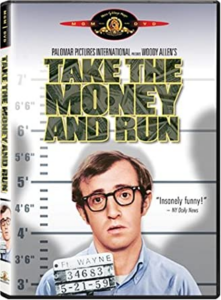A showrunner is not just a producer of a television show but a show’s originator or co-creator and a writer on almost all occasions. These individuals serve as the production’s guiding lights. They take the calls on casting, story arcs, and the day-to-day challenges of having a show finished and ready to air.

What is a Showrunner?
A showrunner is in charge of a TV show’s creative direction and administration. They are not always the show’s creators, but they are virtually always one of its writers.

The showrunners are in charge of keeping the writers’ room on track, keeping the performers happy, and sticking to the episode budget. But, most essential, showrunners must adhere to the series’ fundamental creative goal.
Definition of a Showrunner
A showrunner can mean different things to different people. Still, Shonda Rhimes, an award-winning writer, producer, and showrunner, best defines it: “A showrunner is someone who keeps a program running.” They keep a TV show on the air.”
A showrunner is in charge of the overall creative direction and management of a television series. He/She is a writer and not always the show’s originator but also an executive producer.
Showrunners ensure that scripts are completed, the line producer’s budget is followed, the actors are satisfied, and the writers’ room progresses. They collaborate with the cast and crew and the studio and network. Finally, and most critically, they safeguard the show’s creative vision.
Showrunners in the Netflix Model.
What is the Role of a Showrunner?
Showrunners are in charge of all show parts, from idea to pre-production to shooting and post-production and delivery. Here are some of the most critical responsibilities:
Communicate with the Network or the Studio
Showrunners are the principal point of contact for delivery requirements issues such as final scripts, trims, air dates, show timings, and standards and practices for the network, studio, and production company entities.
Hiring
They hire the Casting Director, Cinematographer, Production Designer, Costume Designer, and Editorial Team, as well as offer regular in-person input throughout the season. They also choose and/or approve the actors’ talent.
Supervision of the Writing Room
All writing staff must be selected and/or approved. They are in charge of submitting season and episode outlines to the network or studio, allocating episodes to writers, and ensuring that the series has a consistent “voice” and tone. This usually entails passing on every screenplay, regardless of who gets the “authored by” credit for a given episode.
What it means to be a showrunner
Showrunner vs. Director vs. Creator vs. Executive Producer
The responsibilities of showrunners, creators, executive producers, and directors in television can be complicated and often differ from those in film. Let’s break down how the roles of showrunners, creators, executive producers, and directors function in television.
Showrunner
A showrunner is a person who has complete creative control over the writing and management of a television show.
What does a showrunner do
Director
A director is someone who decides on a feature film, television show, play, short film, or other production’s creative vision. They have total creative authority over a project. They must have a personal or emotional connection to the topic and have a firm understanding of the technical expertise given in directing training.
Creator
A creator is someone who comes up with a program premise, presents it to a network or studio, and sells it to them. You will always be given executive producer credit as the creator. However, you will not always be the showrunner. For example, suppose you are a newer creator with few distinctions. In that case, the network will often partner you with a separate, experienced showrunner who will carry out the creator’s overarching vision for the show. In many cases, the showrunner is also the creator.
Executive Producer
Although a showrunner is always an executive producer, he or she is not always the creator or director.
What does an Executive Producer do?
How to Become a Showrunner?
It takes a long time to become a showrunner. While there are other ways to advance in the sector, here is the standard step-by-step process that many people have used to obtain the position.
Practice Writing
To begin, you must cultivate healthy writing habits and perfect your skill. In addition to writing spec screenplays, start writing original pilots. Original pilots provide you the opportunity to build your writing style. On the other hand, Spec scripts are excellent for learning how to enter another writer’s headspace.
You can figure out what television shows you like throughout this period. For example, do you like writing comedies or dramas? It is better to concentrate on a specific niche rather than trying to be all things to all people; otherwise, an agency will not know where to place you.
For writers wishing to kick-start their careers, here is a brief checklist:
- Find out when the pilot season will begin.
- Other TV pilots should be read and studied, such as The Breaking Bad and The Sopranos.
- Find the most excellent screenwriting software available online.
- Improve your dialogue writing skills.
- Enter screenwriting competitions with your work.
- Experiment with pitching your TV program concept.
Show Progress in the Writing Room
Showrunners must be knowledgeable about as many parts of television production as possible, so they should be aware of the tasks of everyone they may someday be in charge of.
Starting as a writer’s assistant, you can go to staff television writer, story editor, showrunner’s assistant, etc. It is a lengthy climb, but it is well worth it for the right person.
Enroll in the WGA Showrunner Program
Applicants for the WGA showrunner program must be current active WGAE or WGAW members with a “supervising producer” credit or above on a recent TV series or have a pilot screenplay set up at a network.
This course will teach you all you need to know about producing and hosting a television show. And many of the previous entrants went on to achieve great success.
Work your way up
Here is a broad outline of the roles you will need to perform and the steps you will need to do to get to the top of the ladder and become a showrunner.
Writer’s PAs
They do not write anything down. Instead, they manage most of the workplace by taking calls and acting as gofers. After the whirlwind of the workday, PAs get coffee, order lunch, fill the kitchen, organize the writers’ room, and handle any real jobs that do not entail writing.
Writers’ Assistants
During the brainstorming sessions of the Staff Writers and Story Editors, assistants are responsible for taking notes. The Assistants take notes and organize all of the ideas and concepts when those people break the story.
They will also be expected to proofread the screenplays as they combine the notes and staff writing pages into a single, well-formatted script. Before or after the writers’ room tries to break the story on the script, assistants may be asked to perform any necessary research.
Staff Writer
The purpose of the staff writers is to construct and break the tale. Under the guidance and authority of the above positions, they collaborate with other Staff Writers to accomplish this. Most of the time, they will not be given credit for their contributions unless they work their way up to a Story Editor position. The most daunting aspect of being a Team Writer is that they are always the first to go when budget cuts or changes in the writing staff occur. You may have contributed an essential story or character aspect to a final screenplay as a staff writer, but if you’re not the assigned writer for that episode, your work will go uncredited, and your payment will be your weekly income.
Story Editors
Story editors are writers who have been with the show for a long time and have risen to the top of the room. They are next-level staff writers who receive pay and credit assurances from the WGA. They are compensated on a salary and specific scripts.
Aside from the higher compensation, the greatest distinction between a Story Editor and a Staff Writer is that Story Editors are assured to be credited for at least one episode per season.
Co-Producers
Co-producers report to the producers and workers in the same way that Co-Executive Producers work with Showrunners, handling various delegated duties. They are still writers, but they are working their way up the totem pole as they gain experience with additional responsibilities and decision-making that staff writers do not have.
Producers
Within the writers’ room, producers are experienced, authors. They have progressed by taking on more tasks than just creating scripts. They will have a say in the show’s casting, production, and creative direction. The staff writers will address them.
Supervising Producers
If you are a staff writer, this is the highest job you should aim for before moving up to Executive Producer. Supervising Producers are senior writers who have a wide range of responsibilities. They frequently work closely with the writing crew during the many hours of narrative creation, breaking stories, and actual episode writing. In a nutshell, it is a more hands-on management position. When the Showrunner and EPs are not available, you are in charge of the room.
Co-Executive Producers
The Showrunner’s Number One is any non-showrunner Executive Producer. They are the series’ second-in-command, and they are usually the last to read the final scripts before sending them to the Showrunner for final approval.
The Co-Executive Producer, in place of the showrunner, might grant final approval for script draughts, depending on the series. When Showrunners work on many projects, they may transfer decision-making authority to their Co-Executive Producers. The showrunner will always be in charge of the big-picture decisions, but the Co-Executive Producers are there to help out as much as possible.
Showrunner
Hopefully, you have a basic understanding of what a showrunner does. It is undoubtedly at the top of the heap for television shows. There is no single road to the role, but it usually takes years of dedication, development, on-the-job training, good collaborative skills, and exceptional leadership talents.
Showrunners of Top Television Shows
Television shows like Game of Thrones, Succession, and Master of None have received a lot of love from audiences. But do you know the showrunners of the show? Read on to find out.
Game of Thrones Showrunners
David Benioff And D.B. Weiss were the showrunners of the famous epic series, Game of Thrones. David Benioff and D.B. Weiss inked a significant contract with Netflix to produce new projects shortly after wrapping Game of Thrones for HBO. A few have already been revealed, and one has already been released. From David Benioff and D.B. Weiss, here is an updated 2022 guide to everything coming shortly to Netflix.
David Benioff and D.B.Weiss’ Interview
Succession’s Showrunner
Jesse Armstrong is the showrunner of the trending series, Succession. Jesse Armstrong is the showrunner of the trending series, Succession. Jesse Armstrong has stated that the saga of Logan Roy and his wicked cabal will end at some point, and HBO will follow in its creator’s footsteps.
Master of None Showrunner
Master of None is created by Alang Yang, who also serves as the showrunner. Alan Yang graduated from Harvard University when he was 19 years old. At the age of 25, he was already working on the hit show Parks and Recreation.
Top Showrunners of the Television Industry
The importance of the showrunner has risen dramatically in recent years. They offer a distinct perspective to their shows, so we recognize select showrunners by name. Here are some of the most notable showrunners and what makes their work unique.
Vince Gilligan

You must be living under a rock if you have never heard of Breaking Bad. Vince Gilligan conceived the show and served as the showrunner for the run. Most showrunners are involved in many aspects of the production, but Gilligan took it further and directed several episodes. Here is an insight into what Gilligan did daily on Breaking Bad.
Vince Gilligan on Being a Showrunner
Dan Harmon
Dan Harmon is one of the most well-known examples of a showrunner clashing with a network. Harmon was the showrunner for three seasons of Community until being sacked before the fourth season. Then, for Season 5, he was quickly rehired as co-showrunner.

He also created the story circle to assist writers in creating better TV episodes and feature films. However, Harmon’s firing was ultimately due to a conflict between the two showrunner responsibilities we discussed earlier. Despite the show’s success, the showrunner needed to oversee the creation and management aspects of the show, and it was not working for Community.
Harmon wanted to make good television, while the studio wanted to ensure the program was a rating success. Harmon was fired because he could not produce the show he desired with the money he was given. Getting rid of a showrunner, on the other hand, is nothing new. After Bryan Fuller and Michael Green resigned due to creative differences, American Gods needed a new showrunner.
Dan Harmon on Being a Showrunner
Shonda Rhimes

Grey’s Anatomy premiered in 2005, launching the career of Shonda Rhimes, one of television’s most successful and influential showrunners. For example, Rhimes has directed some of television’s most popular shows, including Scandal, How to Get Away with Murder, and Empire. Rhimes recently inked a multi-billion dollar development contract with Netflix.
Shonda Rhimes on being a showrunner
Salary of Showrunners
Showrunners are frequently well compensated. Top-tier showrunners and Hollywood hopefuls from both the film and television industries now routinely sign nine-figure deals. Shonda Rhimes, a successful showrunner, makes $15-$20 million for each program at ABC.
For their work on Game of Thrones, David Benioff and D.B. Weiss were paid between $100,000 and $300,000 per episode. However, if you are a first-time showrunner, you can expect to make anything from $30,000 to $40,000 per episode.
Conclusion
You cannot learn to be a showrunner unless you have a job. Working your way up through the writer’s room, from writer’s assistant to staff television writer to story editor, and so on, is the most usual path to becoming a showrunner. Working under other showrunners provides invaluable experience in observing how they operate a writer’s room, navigating production and post-production problems, and learning what works and what does not.












